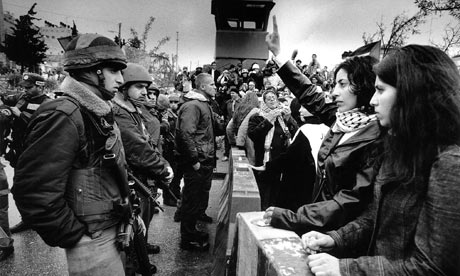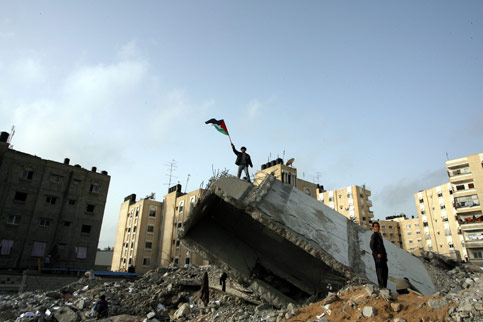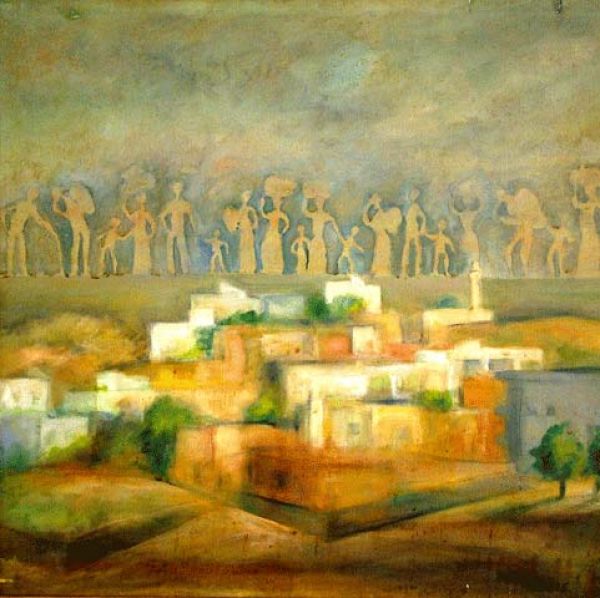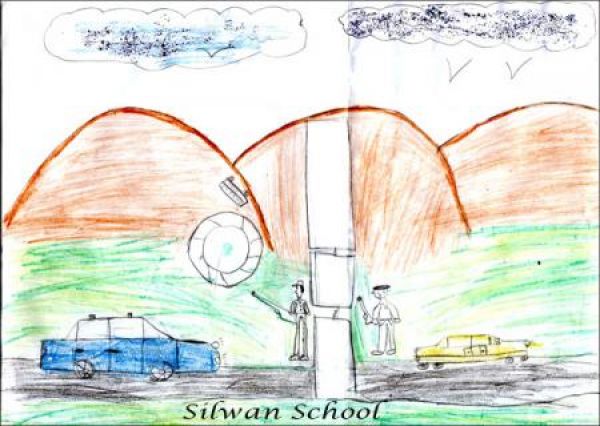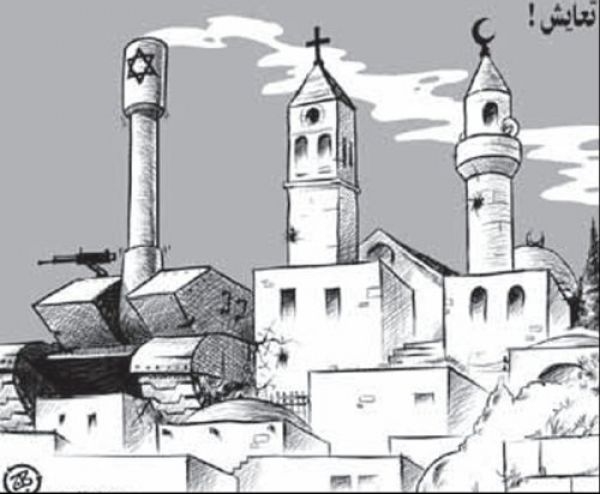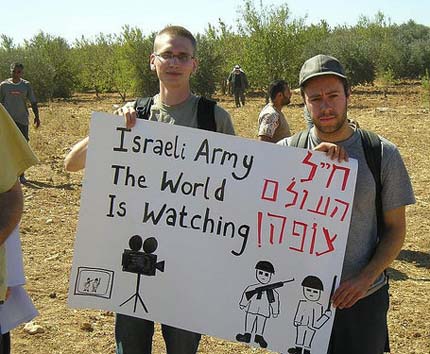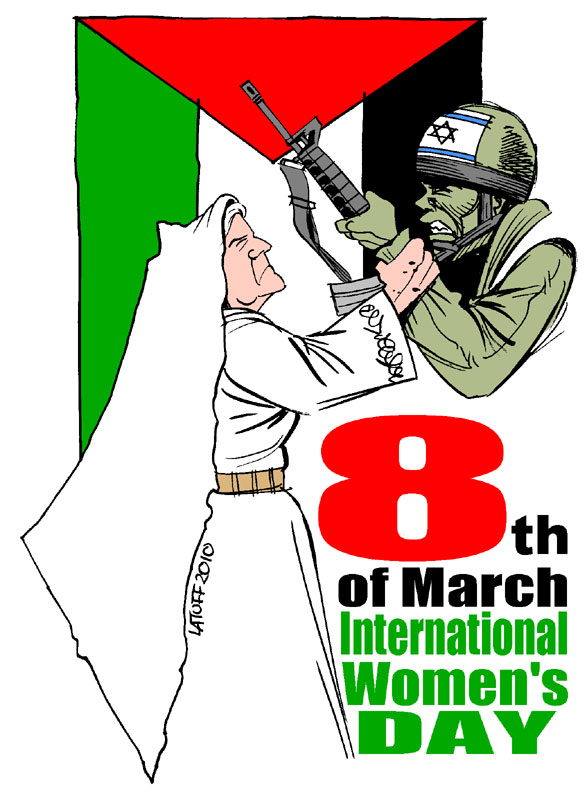
EDITOR: The ‘Peace Process’ is taken out of the deep freeze, but is there any life left in this corpse?
Hopeful Overtures, or Distant Thunder?
Now, some 14 months after Obama has taken over the Oval Office with much trumpeting about ‘change’, he finally remembered to start worrying about the Middle East and Palestine. This reminds us of the similar timetable of all US presidents before him, and also of the less than auspicious results of such sham up to now. On the one hand, Obama and Clinton have to be seen to be doing something, as the noises from Palestine and the Arab world, not to mention sectors of the Israeli society, are all speaking about the ‘last chance for peace’. On the other hand, he cannot do anything; he is a prisoner of his own ‘convictions’ seeing Israel as the most important ally in the coming war on Iran, and the following chaos which will no doubt overtake the Middle East. Israel, for Obama and Clinton, who are facing a stalemate if not defeat in Afghanistan, and unknown dangers in Pakistan, Yemen, Iran and parts of the Gulf, with certain unrest in Egypt, seems like the only ‘stable domino piece, and on their side, for better or worse.
So, what will they do? What can they do? How new can this initiative be?
Unfortunately, Both Obama and Clinton are fully committed to the decades-old game of the so-called Two State solution, woefully ignoring all that was done since 1967, not to mention 1948. Their solution is a Pax Isriaeliana – a forced agreement denying the minimum basic rights and needs of Palestine, and fully colluding with the Israeli agenda of only one meaningful entity, political, military and financial, between the river Jordan and the sea, to be a vassal state of the US and serve its regional interests. Nothing else is on the table, and nothing ever was. This is the reason that despite the rush of talks, talks about talks, Nobel prizes and photo-opportunities, and a much reduced Palestinian leadership, especially after the split with Hamas, there was no meaningful movement towards a just solution in Palestine. As the US/Israel position concentrates and is predicated on Israel’s ‘security needs’, which as we know, engulf the globe rather than just the region, and Israel’s notion of what it needs in terms of territories, control and sheer military power, there was nothing for any Palestinian leader, however desperate (and most of them were, and still are) to sign on behalf of their people, if they do not wish to sign away any future prospects altogether. Every Palestinian leader knows that continuing with the charade of the ‘peace talks’, in the way it was established over the last few decades, is playing with fire near an open oil drum; the Palestinian population has suffered more than possibly any other since 1945, and there is no end in sight. Palestinians know clearly enough that all the Oslo agreements, promises and procedures were used by Israel for one aim – to advance, deepen and secure its stranglehold on Palestine through a system combining settlements, brutal military occupation, the ‘separation’ (apartheid in Afrikaans) wall, daily repression and mass starvation in Gaza. Even the most pliant Palestinian leader, and there was no one more pliant than the current one, must understand that they cannot puta signature to something which will not only stifle hope, but cannot be delivered. The Oslo cloud of misguided optimism has long been blown away.
So, what is the agenda of the current revival of the ‘peace’ rain-dance by Obama, Clinton and Mitchell? Surely, they also know what has been described here, and know it without any possible doubt?
As much as one would like to believe in the benign aims of US foreign policy, (not a position one could easily recommend) it seems that like in Iraq, Afghanistan, Pakistan, Iran and many other fronts of the current conflict between Western Huntingtonian ‘civilizational’ crusade and the Moslem/Arabic cultures, with Palestine becoming the iconic conflict of this ‘clash of civilizations’. Pundits have told the various US administrations for decades that as long as the Palestine conflicts festers and occasionally boils over, the chance of stemming the anger in the Muslim and Arab world against the West is minimal; the US has overlooked, not to say ignored, such advice with surprising tenacity which seems foolhardy, to say the least. All the various efforts to quell unrest in the Muslim East have been on the US/Israel terms: “we will tell you how to behave, if you wish us to speak to you, and you better follow the instructions”. Such a policy could only produce the results which we know today.
So, is Obama able to ascend beyond the platitudes and destructive patterns which have dogged not only the Palestine conflict, but the whole US foreign policy? Is he able to reverse the trends of decades? Is he indeed willing to do so?
The answer to date must be a resounding NO. In all his foreign policy initiatives, Obama, and Clinton and Mitchell as his semi-autonomous apparatchiks, have proven their deep conservatism, their dependence on doctrines which have failed time and again to achieve the stated aims, and their beholden commitment to what they call ‘a strong Israel’, meaning the corollary of a weak Palestine, and a weak Arab Middle East. As long as this remains the order of the day, no amount of photo-opportunities will change the realities in Palestine, in the region, in the world. The US elite, its administration, its powerful economy, its military-industrial complex, have all combined to react in the well known rituals of the declining empire – a denial of unpalatable realities, a failure to think beyond their power grip, a selfishness bred by ultimate control for far too long, an inability to transcend patterns of behaviour ingrained by being so strong, that no other force need be consulted or taken into account.
This bodes ill for Palestine, of course; it does not herald some excellent times for Israel either, of course. Unless the Israeli leadership, its social, intellectual and financial elites, all colluding fully in the brutal occupation, are brought to book, are faced with the results of the decades of their crimes, there is no hope for Palestine, Israel, or the Middle East.
There is also no hope for the rest of us, as the current US administration is failing its first major test.
A slightly different version was sent to the Guardian today, by Haim Bresheeth
Joe Biden and George Mitchell arrive to kick-start Israeli-Palestinian talks: The Guardian
Indirect negotiations mark first return to peace process since Gaza war
George Mitchell meets Israeli prime minister Binyamin Netanyahu in Jerusalem yesterday as he began a round of regional talks lasting four months. Photograph: Moshe Milner/EPA
The US vice-president, Joe Biden, is due in Israel tomorrow for an American diplomatic initiative to start indirect negotiations between Israel and the Palestinians.
The new round of so-called “proximity talks” could be announced as early as tomorrow, but there is scepticism on both sides about the chance of any agreement. George Mitchell, the US special envoy to the Middle East, will shuttle between Israeli and Palestinian leaders for four months hoping to find common ground. Although the talks are low-key, they mark the first return to a peace process since Israel’s war in Gaza more than a year ago.
Mitchell flew into Israel on Saturday night and met with Ehud Barak, the Israeli defence minister, for 90 minutes. He saw Binyamin Netanyahu, the Israeli prime minister, today and will meet Palestinian president Mahmoud Abbas tomorrow.
Mitchell’s team will handle the talks, while Biden’s visit is reportedly focused on trying to win Israeli support for the US administration’s policy on Iran and on discouraging Israel from any military action against the Iranian regime over its nuclear ambitions.
Abbas won the support of the Arab League and today the executive committee of the Palestine Liberation Organisation to go ahead with the talks. Yet they represent a partial climbdown for the Palestinian leader, who for a year has insisted there will be no talks with Israel without a full halt to the construction of Jewish settlements on occupied Palestinian territory. However, construction continues, with Israel offering only a limited, temporary halt that expires in a few months.
In a speech on Saturday in Ramallah, in the occupied West Bank, Abbas warned the peace process had “almost reached a dead end. The Israeli government continues to procrastinate to gain time and strengthen its control of the occupied territories to prevent any realistic possibility of establishing an independent, viable … state of Palestine,” he said.
The Palestinian leadership wants an independent state in Gaza and the West Bank, with a capital in East Jerusalem. However, Netanyahu says he will not give up East Jerusalem, which Israel captured in the 1967 war, occupied and later annexed ‑ a move not recognised by the international community. He also insists on holding on to large Jewish settlement blocs in the West Bank and says Israel must maintain a key presence in the Jordan valley, along the border with Jordan.
Some Israeli commentators were doubtful about the new diplomacy and said the gap between Israeli and Palestinian leaders was too wide to bridge. “If the talks are held in the planned indirect format, they are not going to lead anywhere,” wrote Shimon Shiffer, a columnist in the Yedioth Ahronoth newspaper. “They are going to lead neither to increased trust between the leaders nor to final status arrangement talks in the near future.”
The diplomacy comes at a time of heightened tension. There have been several days of clashes between Palestinians and Israeli police at the Haram al-Sharif, or the Temple Mount, in Jerusalem’s Old City. There has been criticism of an Israeli announcement about more houses planned inside East Jerusalem settlements and on Friday a 14-year-old Palestinian boy was critically injured when he was shot in the head with an Israeli rubber-coated bullet during a demonstration in Nabi Saleh, in the West Bank, against Israeli confiscation of village land.
In Jerusalem on Saturday night, more than 2,000 Israelis and Palestinians held a protest against the eviction of Palestinian refugees and the growing presence of rightwing Jewish settlers.
US to relaunch peace talks in Middle East: The Independent
US ready to apportion blame if new round of talks fails to make progress again
By Donald Macintyre in Jerusalem
Monday, 8 March 2010SHARE PRINTEMAILTEXT SIZE NORMALLARGEEXTRA LARGE
US Vice-President Joe Biden will arrive in Israel today following a formal decision by the West Bank Palestinian leadership to approve Washington’s proposal for indirect peace negotiations with Israel.
The Palestinian Liberation Organisation gave President Mahmoud Abbas a mandate to take part in the talks – the first with Israel for over a year – while warning that without real progress to a deal on borders they would pull out of the negotiations after four months.
With both US presidential envoy George Mitchell – who will shuttle between the two sides during the process – and Mr Biden in the region, a more detailed timetable for the talks is likely to emerge this week. The Palestinian negotiators have so far ruled out direct talks without the full freeze on settlement construction that had been sought by Washington.
Part of Mr Biden’s purpose in talks with Israeli leaders has been widely reported to be to urge Israel not to contemplate an Israeli military strike on Iran while President Obama continues to try for more stringent international sanctions to press Tehran to abandon its perceived military nuclear ambitions.
But the Vice President, the highest ranking US official to visit Israel since President Obama took office, will also meet Mr Abbas and other Palestinian leaders in Ramallah during his three-day visit. Yesterday’s PLO decision was expected after the heavily qualified approval given to the talks by the Arab League in Cairo last week.
There have been indications from the administration that it is ready to apportion blame for any failure to progress in the Israeli-Palestinian talks. At the same time, low expectations for the outcome were underlined by an internal Israeli Foreign Ministry paper assessing that the Middle East will be a relatively low priority for Washington in the run-up to November’s mid-term Congressional elections. The paper, leaked to the Israeli newspaper Haaretz, says that in preparatory discussions for the so-called “proximity talks” US officials took positions closer to Palestinian requirements than to Israel’s. Israeli Prime Minister Benjamin Netanyahu, who has been demanding that the Palestinians explicitly recognise Israel as a “Jewish state”, has continued to affirm his opposition to the sharing of Jerusalem as a capital – regarded as a sine qua non by Palestinian negotiators – and envisages a continued Israeli presence in the Jordan Valley.
But the document also suggests that the US administration will avoid taking any position that suggests disagreement with Israel because of the support that Israel enjoys in Congress. The unspoken implication is that that will be particularly true as President Obama seeks to prevent heavy Republican gains in the mid-term elections.
The talks co-incide with an increase in grass-roots protests by some Palestinians, partly exacerbated by the inclusion of religious shrines in two West Bank cities, Hebron and Bethlehem, in a list of Jewish heritage sites published by Mr Netanyahu.
A 14-year-old boy Ehab Fadel Barghouthi was still critically ill yesterday after being shot by border police with a rubber-coated bullet that penetrated his skull during an anti-settlement protest in the West Bank village of Nabi Saleh on Friday. Eyewitnesses say he was shot at a range of around 20 metres during stone-throwing incidents.
And the Palestinian Authority has protested at the military detention of a 13-year-old boy Hasan El-Muhtaseb for six days for allegedly throwing stones during protests in Hebron. A military court yesterday released the boy on a £875 surety.
